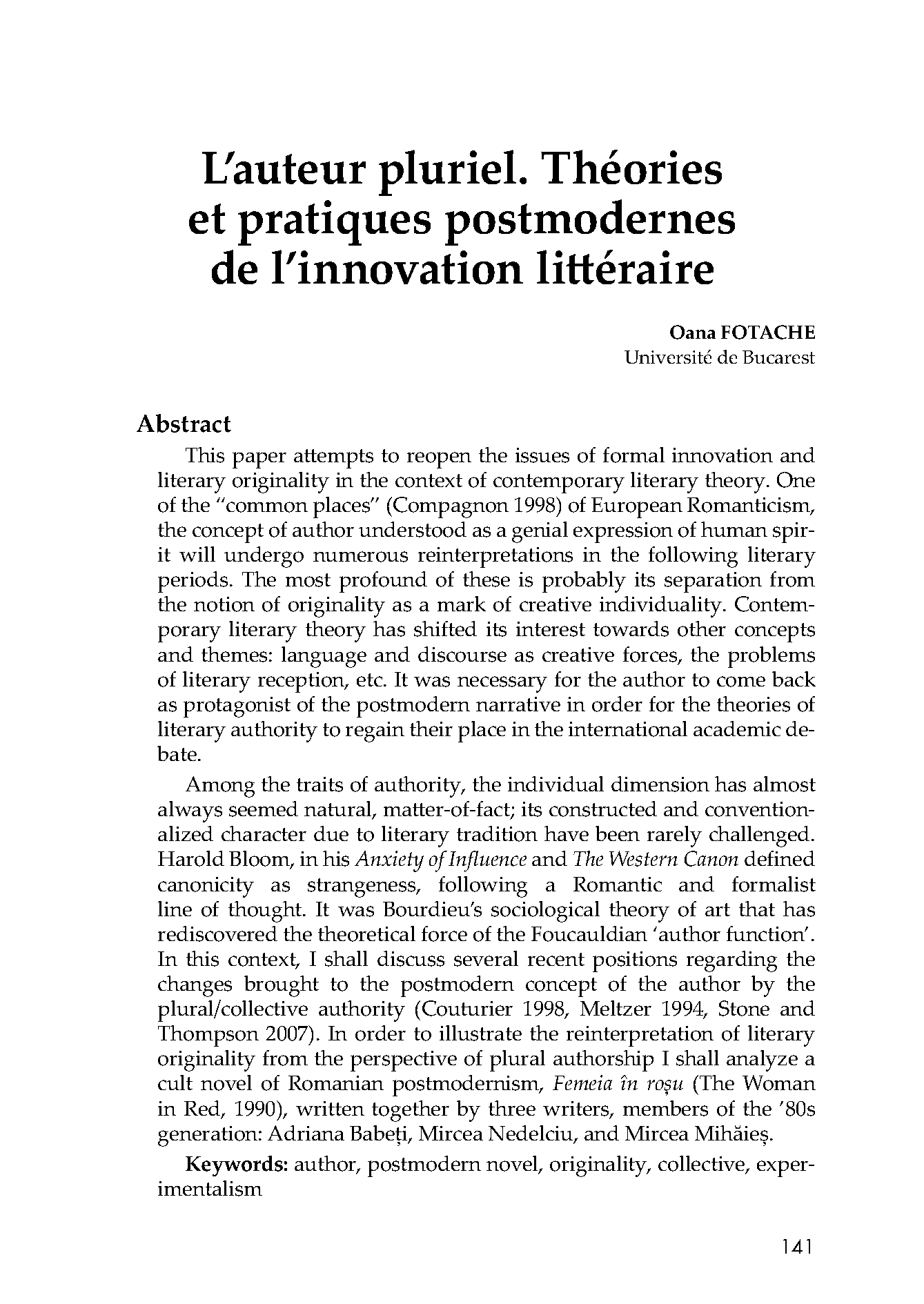L’ auteur pluriel. Théories et pratiques postmodernes de l’innovation littéraire
DOI:
https://doi.org/10.62229/rst/1.1/9Keywords:
author, postmodern novel, originality, collective, experimentalismAbstract
This paper attempts to reopen the issues of formal innovation and literary originality in the context of contemporary literary theory. One of the “common places” (Compagnon 1998) of European Romanticism, the concept of author understood as a genial expression of human spirit will undergo numerous reinterpretations in the following literary
periods. The most profound of these is probably its separation from the notion of originality as a mark of creative individuality. Contemporary literary theory has shifted its interest towards other concepts and themes: language and discourse as creative forces, the problems of literary reception, etc. It was necessary for the author to come back as protagonist of the postmodern narrative in order for the theories of literary authority to regain their place in the international academic debate.
Among the traits of authority, the individual dimension has almost always seemed natural, matter-of-fact; its constructed and conventionalized character due to literary tradition have been rarely challenged. Harold Bloom, in his Anxiety of Influence and The Western Canon defined canonicity as strangeness, following a Romantic and formalist
line of thought. It was Bourdieu’s sociological theory of art that has rediscovered the theoretical force of the Foucauldian ‘author function’. In this context, I shall discuss several recent positions regarding the changes brought to the postmodern concept of the author by the plural/collective authority (Couturier 1998, Meltzer 1994, Stone and
Thompson 2007). In order to illustrate the reinterpretation of literary originality from the perspective of plural authorship I shall analyze a cult novel of Romanian postmodernism, Femeia în roșu (The Woman in Red, 1990), written together by three writers, members of the ’80s generation: Adriana Babeți, Mircea Nedelciu, and Mircea Mihăieș.





